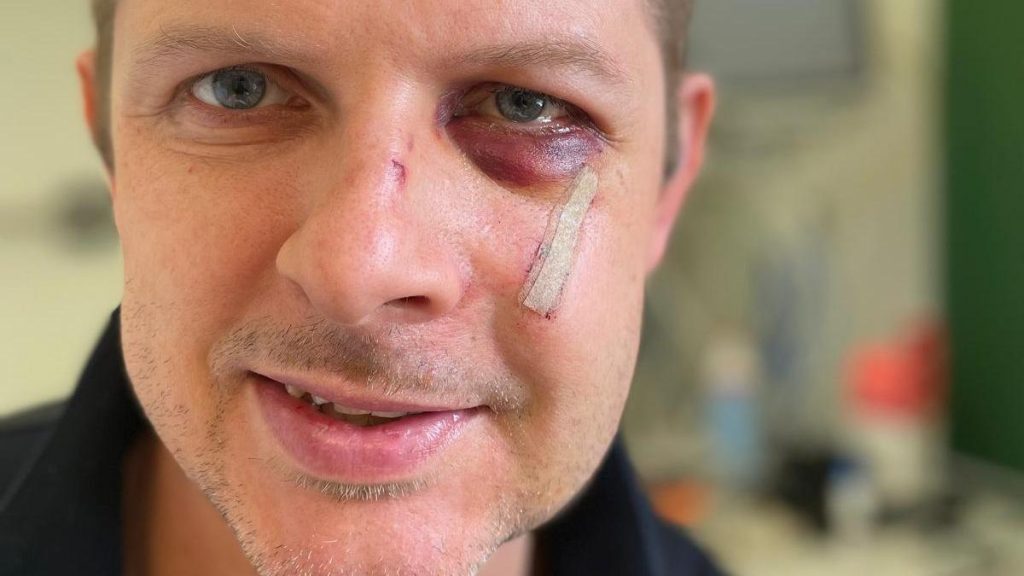After the attack on SPD politician Matthias Ecke in Dresden, three additional suspects, aged 17 and 18, were identified. Their homes were searched by the Dresden Public Prosecutor’s Office and the State Criminal Police Office of Saxony. One of the suspects is believed to have a “politically motivated right-wing” background. Ecke, who was assaulted while hanging up campaign posters, expressed his gratitude for the support and solidarity he received. He emphasized the importance of being able to express opinions freely in a democracy and shared a photo from the hospital, showing him with a black eye and bandages on his face.
Following the assault on Ecke, the authorities are investigating four suspects, all aged 17 and 18, with at least one being linked to the right-wing extremist spectrum. Two of the suspects had previous encounters with law enforcement. Despite being German nationals, the suspects were released due to lack of grounds for detention. Evidence was seized during searches of their residences, which is now being evaluated. Ecke underwent facial surgery for fractures sustained during the attack. SPD General Secretary Kevin Kühnert stated that Ecke had a successful operation but will face a long recovery process. Ecke plans to return to the election campaign and advocate for democratic values and high voter participation.
In response to the attack, demonstrations in Berlin and Dresden were held to denounce political violence. Thousands of people gathered to show support for democracy and condemn violence. Various politicians, including SPD leader Saskia Esken, attended the rallies. The events aimed to highlight that violence has no place in a democratic society and to promote peaceful political discourse. The incident has sparked a national debate on the escalation of violence in election campaigns and the importance of respecting political differences.
The German government strongly condemned the attack on Ecke, emphasizing that assaults on politicians and election campaigners pose a threat to democracy. Vice government spokesperson Christiane Hoffmann stated that the motive behind such attacks is irrelevant, as the overall climate of violence is concerning. Interior Minister Nancy Faeser has taken measures to address this issue, including calling for increased police presence to protect politicians during the election campaign. The government plans to discuss further actions with state interior ministers to address the growing trend of political violence.
The incident involving Ecke may lead to parliamentary discussions in Saxony. In addition to Ecke, several other politicians have been targeted in recent attacks or incidents of harassment. Green Party members Kai Gehring and Rolf Fliß were attacked in Essen, while Katrin-Göring-Eckardt was aggressively confronted in East Brandenburg. An AfD state parliament member was assaulted in North Rhine-Westphalia. These incidents highlight the need to address rising political tensions and ensure the safety of elected officials and campaigners in Germany. The series of assaults underscores the importance of upholding democratic principles and safeguarding political discourse from violence and intimidation.















